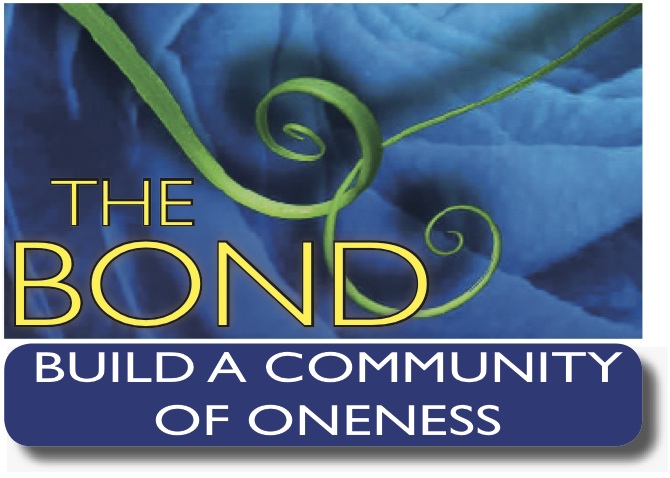Getting Started
The Bond, a seven-week study program created for the 15th Annual Season for Nonviolence, focuses on the essential bond that unites us all as a means of strengthening your community and helping you and your group evolve to become a powerful change agent for local and global unity.
This featured program of the 2011 Gandhi King Chavez Season for Nonviolence campaign is based on author Lynne McTaggart’s new book The Bond.
The program also highlights the power of the ‘superordinate’ goal - a common overarching goal and purpose larger than yourself – to enhance cooperation, rebuild our neighborhoods and recreate cohesion in and between local and international communities.
Participants will learn to move past the competitive and individualistic mindset that too often forms the undercurrent of modern life and foster humanity’s deep-seated impulses of wholeness, cooperation, fairness, generosity, mutual support and community.
The program aims to train participants to see the world from a more holistic perspective, to enjoy more cooperative relationships – even across the deepest divides – to develop more united social groups, and to learn to use group support as a powerful local and global agent of change.
• Step 1: Buy The Bond: Connecting through the Space Between Us by Lynne McTaggart by clicking on one of the icons.
• Step 2: Post a notice and sign-up sheet at churches of New Thought (Unity, Science of Mind, or Centers for Spiritual Living), yoga or meditation groups, WholeFood stores or other similar types of organizations indicating that you would like to start a group wedded to uniting your community and other communities around the world.
• Explain in the notice that the purpose of the group is to discuss ways to improve the local and global community and to learn to live in a more connected manner.
• Ask people to contact you via e-mail. If you are doing the organizing, don’t hand out your home address until you know each other well.
• Step 3. Keep numbers manageable. In The Tipping Point, Malcolm Gladwell offers evidence that human beings were designed to work optimally in groups of 150 or less. If your group gets larger, form subgroups under 150.
• Step 4. Select a public place for your initial meetings until you really get to know your other members. Some possibilities are a cheap hall (where everyone contributes to the cost of hiring it), a local coffee house, a community or church hall, or even an inexpensive but quiet restaurant.
• Step 5. Plan to meet weekly, if family commitments permit. A regular schedule encourages people to put it in their calendars and attend regularly.
• Step 6. Create a structured agenda according to the weekly study guides, so that people know what to expect and can come ready to contribute. Consult the weekly study guides for particular chapters to prepare for discussion topics and exercises.
• Step 7. Communicate with other groups around the world. We will be providing more information about how all the groups can speak together to exchange ideas and information. You’ll be amazed at how quickly you’ll be able to develop a worldwide virtual community of people who share your ideals and who are also intent on living in wholeness.
|















